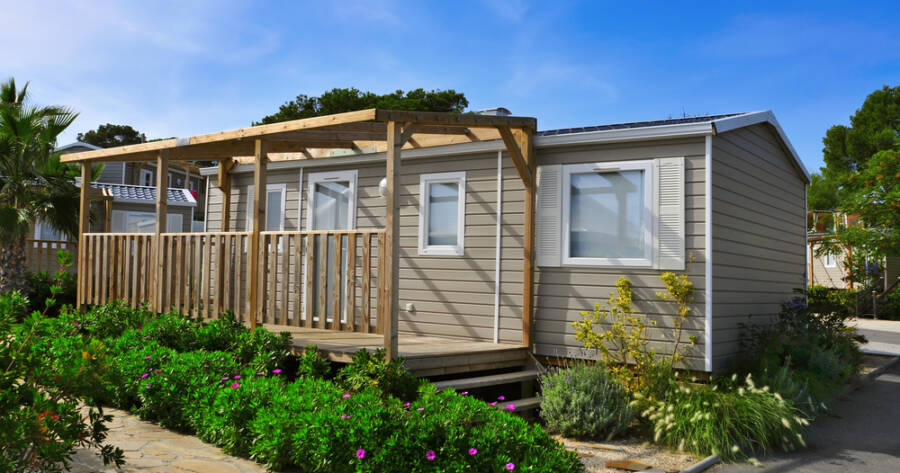Modular homes offer a modern, cost-effective, and sustainable housing solution. These prefabricated homes provide customizable designs, reduce construction time and waste, and are gaining popularity in today’s real estate market for their efficiency and flexibility.
Understanding Modular Homes
Modular homes have emerged as a modern and efficient solution to meet today’s housing needs. These homes differ from traditional site-built and prefab houses in their construction and design processes. Built in factories under controlled conditions, modular homes ensure high precision, quality, and consistency. The construction is completed in sections, or “modules,” which are then transported to the home site and quickly assembled. This unique process offers many advantages, from faster build times to significant cost savings, and makes modular homes an increasingly popular choice among homebuyers.1
Speed and Efficiency: A Key Advantage
A major advantage of modular homes is the reduction in construction time. Traditional homes can take months, if not longer, to complete due to weather delays, coordination of contractors, and other unforeseen challenges. However, since modular homes are constructed in a factory, these variables are largely eliminated. Once the modules are transported to the site, the assembly process is quick and efficient. This streamlined approach not only cuts down on the overall build time but also reduces the impact of labor shortages, making modular homes an attractive option for those looking to move into their new home sooner rather than later.
Additionally, the controlled environment of the factory ensures that construction is not subject to weather-related delays, which can significantly impact site-built projects. This leads to fewer project interruptions and a more predictable completion schedule, helping homeowners and contractors stay on track.
Flexibility and Customization
Modular homes are often mistakenly thought of as rigid, pre-designed structures with little room for personalization, but that couldn’t be further from the truth. In fact, one of the most appealing aspects of modular homes is the flexibility they offer. Homeowners can work with manufacturers to design a home that fits their specific needs, tastes, and lifestyles.
Modular homes can be customized in various ways, including the number of bedrooms, bathrooms, layout configurations, and even unique exterior and interior design elements. From modern, minimalist designs to traditional aesthetics, the possibilities are nearly endless. Furthermore, homeowners can select high-quality finishes, energy-efficient appliances, and sustainable materials to ensure that their modular home is not only visually appealing but also aligned with their personal values and needs.
Affordability and Sustainability
Cost-effectiveness is another major draw of modular homes, because the construction process is more efficient and streamlined, modular homes can be built at a lower cost than traditional homes. The factory setting allows for bulk purchasing of materials, which reduces costs, and eliminates many of the inefficiencies seen in on-site construction. As a result, homeowners can often get a high-quality home at a significantly lower price per square foot.
Additionally, modular homes are inherently more sustainable than many traditional building methods. The factory-controlled environment minimizes material waste by precisely cutting and utilizing materials, which reduces the environmental impact of construction.2 Since these homes are built to meet or exceed local building codes, they are also energy-efficient, meaning they can save homeowners money on utilities in the long run.
Convenience and Long-Term Value
Modular homes offer not only immediate convenience but also long-term value. Their durability and high standards of construction ensure that they meet the same, if not higher, quality standards as traditional homes. Most modular homes are built to withstand the rigors of transportation and assembly, making them extremely sturdy. Moreover, the speed at which modular homes can be completed and move-in ready reduces the stress and uncertainty associated with longer construction projects.
The Future of Housing
In summary, modular homes are revolutionizing the real estate industry by offering a compelling solution to many of the housing challenges we face today, including affordability, sustainability, and efficiency. With their reduced construction time, customizable designs, and cost-effectiveness, they represent the future of housing. Whether you’re a first-time homebuyer or looking to downsize, modular homes provide the perfect opportunity to own a home that aligns with your needs, lifestyle, and budget.
